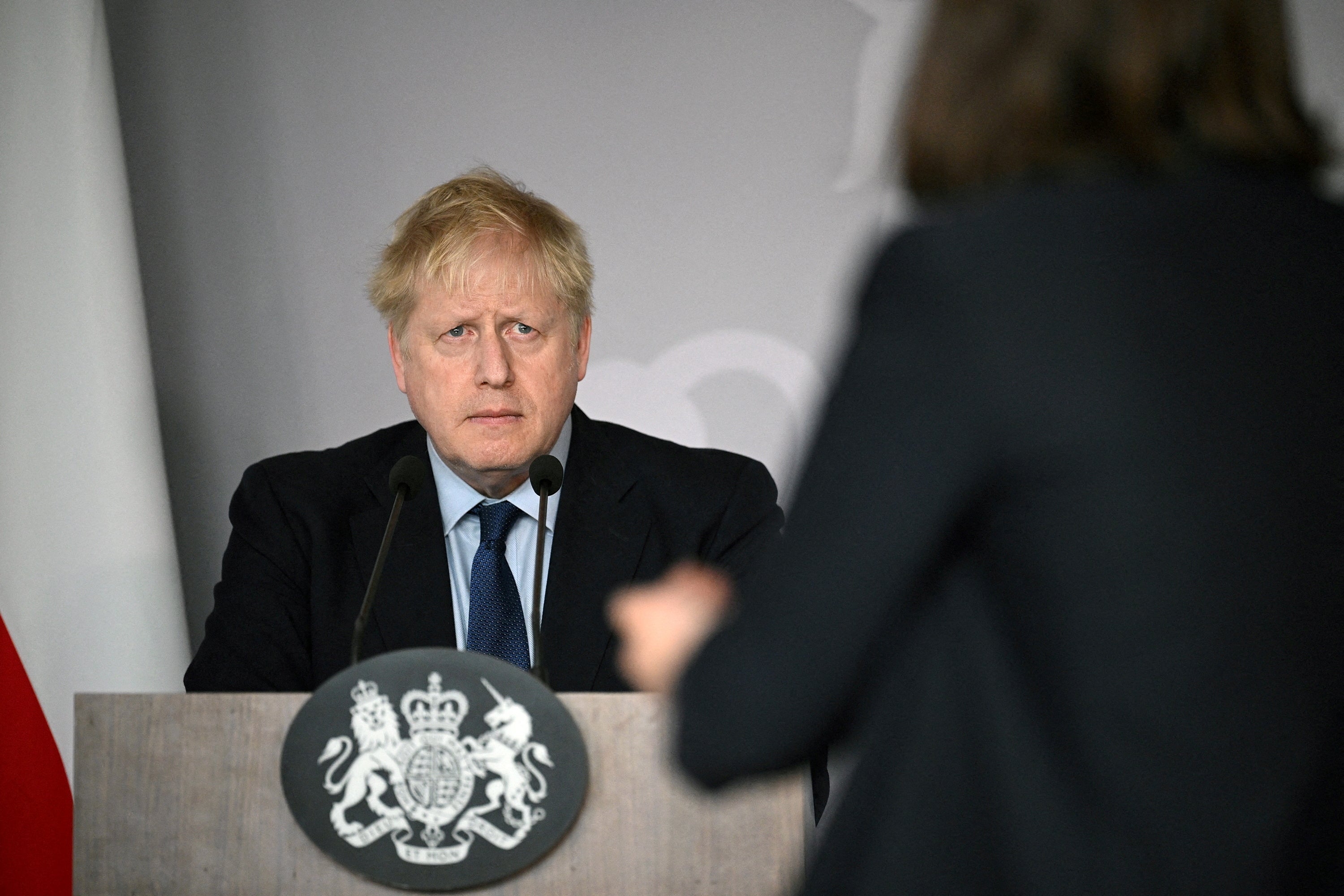Don’t dismiss a no-fly zone – we should not abandon Ukraine to its fate
A no-fly zone is not a magic security blanket that can conclude hostilities, but a tactical option which might be harnessed within a wider strategy – and used to stop Putin


Your support helps us to tell the story
From reproductive rights to climate change to Big Tech, The Independent is on the ground when the story is developing. Whether it's investigating the financials of Elon Musk's pro-Trump PAC or producing our latest documentary, 'The A Word', which shines a light on the American women fighting for reproductive rights, we know how important it is to parse out the facts from the messaging.
At such a critical moment in US history, we need reporters on the ground. Your donation allows us to keep sending journalists to speak to both sides of the story.
The Independent is trusted by Americans across the entire political spectrum. And unlike many other quality news outlets, we choose not to lock Americans out of our reporting and analysis with paywalls. We believe quality journalism should be available to everyone, paid for by those who can afford it.
Your support makes all the difference.I predict Vladimir Putin has sealed his fate and his days in charge are now numbered. This poorly judged invasion of a fellow Slavic neighbour has completely backfired, turning the world against Russia in less than a week. Ukrainian defiance has won global praise, forcing the Russian president to become increasingly barbaric. We await the slaughter of thousands of civilians.
Isolated and humiliated with an economy in freefall, Putin is being deserted by his people. Russians are demonstrating, oligarchs are fleeing and the stranglehold from the west only increases by the day. Putin’s senseless war has trashed Russia’s standing in the world, and there is no reprieve so long as he is in charge.
History shows that the Kremlin knows when, and how, to ditch its leader – memorably in 1964, when Khrushchev was ousted in a palace coup for losing the Cuban missile crisis.
The question is: how much carnage can he cause before he goes? It will require cool heads, collective resolve and Cold War-esque statecraft to manage the most dangerous security crisis in decades.
After years of creeping timidity, the west has woken up; Nato is reunited, Europe is invigorated and even Germany is now rearming. President Zelensky’s leadership – and his country’s stoic resilience – have inspired and motivated the world to respond.
Coordinated cultural, economic and diplomatic castigation makes it impossible for Russia to redeem itself, so long as Putin – facing war crimes prosecution – remains in charge. Even China, which Putin hoped would help him out economically, is looking distinctly displeased.
We also see a belated collective resolve to address our weary western security architecture. If realpolitik sees Germany meekly donating helmets to Ukraine one week, then offering lethal support and investing £100bn in defence the next, I have every confidence the recent reductions in tanks, planes and troop numbers in our own defence posture will also be reversed.
Yet the west faces a more immediate dilemma. How does our rekindled determination to defend international freedoms apply beyond the Nato alliance? While Britain has done more than most to train and equip Ukrainian forces, Nato stopped short of answering President Zelensky’s request for ground troops that would have deterred an invasion – as it was not a member of the alliance.
Now, as Russian tanks begin to encircle cities, Ukraine understandably calls for a no-fly zone. I publicly stated this should not be dismissed. Firstly, to keep our options open and the enemy guessing; secondly, the act of evaluating this significant military tactic would advance us from our peacetime state of flux into a more robust mindset to cognitively confront a nuclear-armed nation that’s broken international law.
Instead, Ukraine’s request was instantly dismissed on both sides of the Atlantic on the assumption it would trigger direct conflict with Russia, and potentially World War Three. This knee-jerk response was far too simplistic, misleading – and, indeed, defeatist.
We must quickly remind ourselves of the more intense and higher risk: Cold War statecraft is needed to ensure we are not spooked by Russian incendiary rhetoric.
A no-fly zone is not a magic security blanket that can conclude hostilities, but a tactical option which might be harnessed within a wider strategy – and used to secure a long-term outcome. How it would be implemented (for example, using jets, drones or ground-to-air missiles) and by which nation (supported by Ukrainian pilots, or, indeed, Nato itself) all have a bearing on approval.
The very consideration of operations such as no-fly zones illustrate an air of confidence (even if they are privately ruled out). It can act as a future bargaining chip. If Russia and Ukraine agree a humanitarian zone, it could be legitimised through a UN General Assembly vote – any breach of which could then be used to further galvanise global opinion against Putin.
Sadly, as things stand, the horrible calculation has been made that there is no western obligation nor benefit in directly confronting Russian forces in Ukraine. This is wrong. We should not abandon Ukraine to its fate. Putin will not stop until he is stopped. If he prevails, unchallenged today, he will take the fight elsewhere tomorrow – pursuing his long-term objective of driving out Nato from all former Warsaw Pact states.
To keep up to speed with all the latest opinions and comment sign up to our free weekly Voices Dispatches newsletter by clicking here
As Putin takes this conflict to ever more savage levels the public demand to do more will only grow. This cannot be finessed. The west has rejuvenated its voice and collective economic influence which will see Putin, sooner or later, dumped by his own people. But until that time, it’s not enough to halt the unprovoked mass slaughter in Ukraine.
To achieve this will require greater resolve in incrementally deploying our formidable and superior (Nato) firepower that both avoids escalation, but prompts more voices in the Kremlin to question Putin’s judgement.
Tobias Ellwood is a Conservative MP, former infantry captain and chair of the House of Commons defence select committee
Join our commenting forum
Join thought-provoking conversations, follow other Independent readers and see their replies
Comments